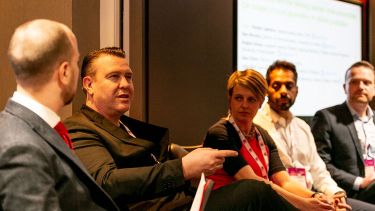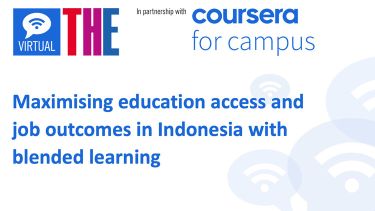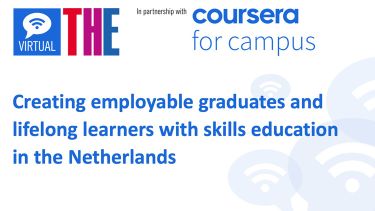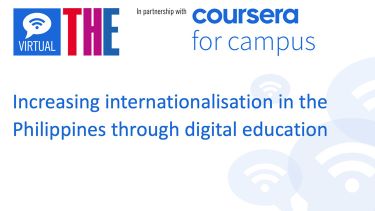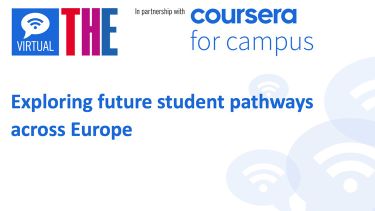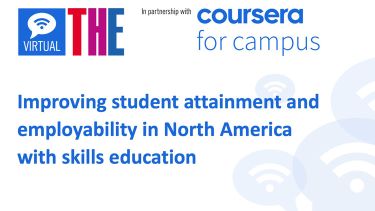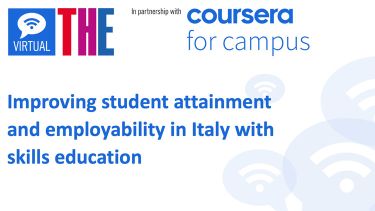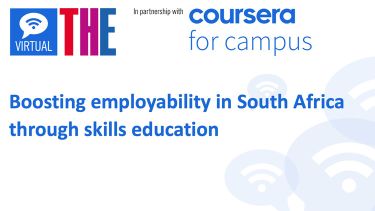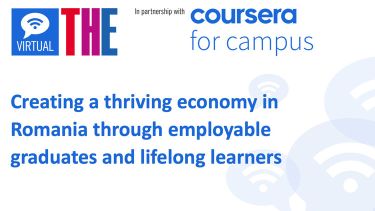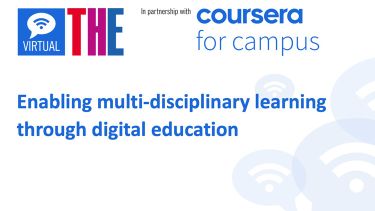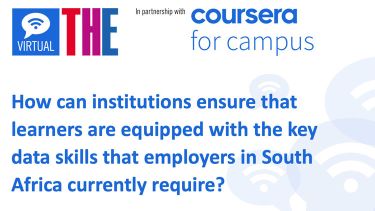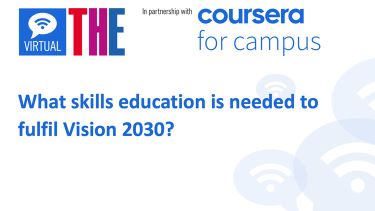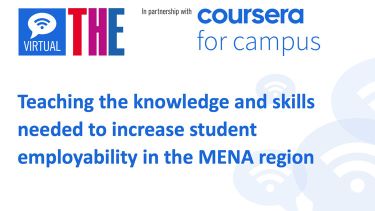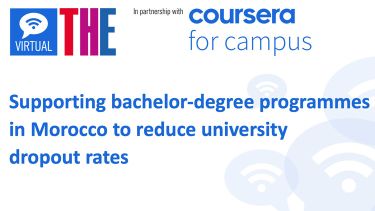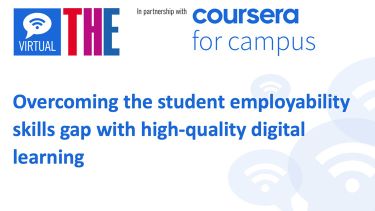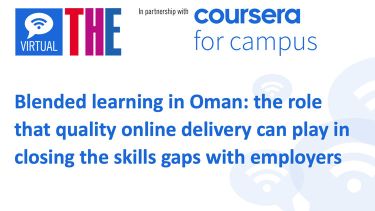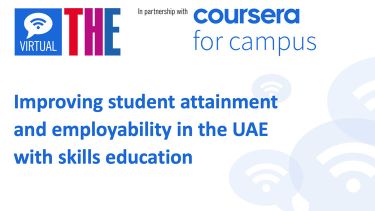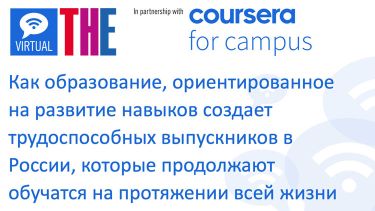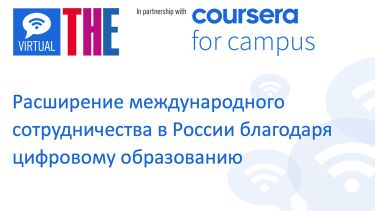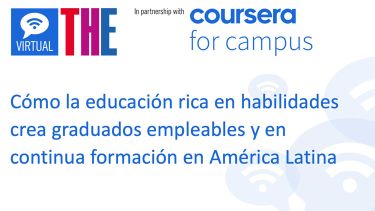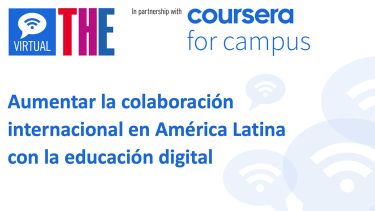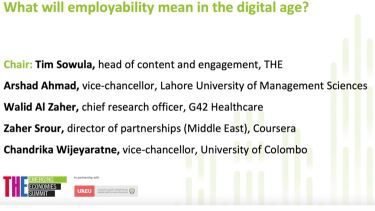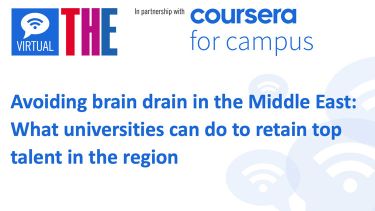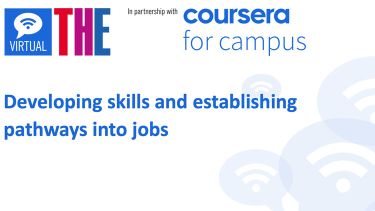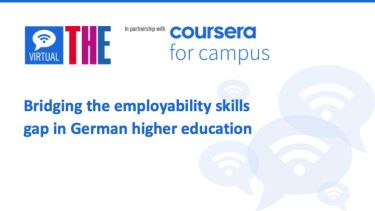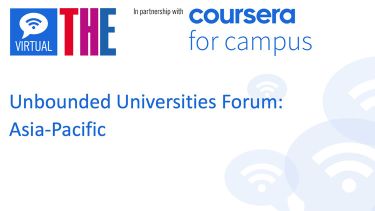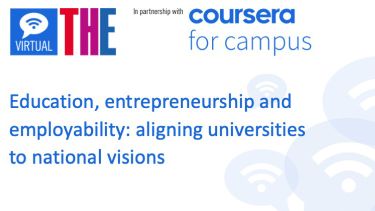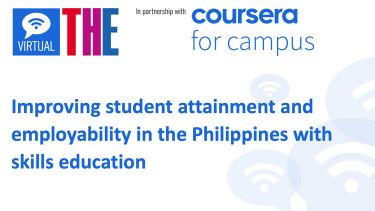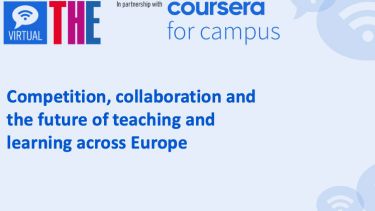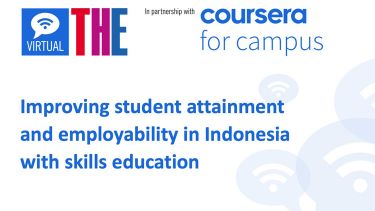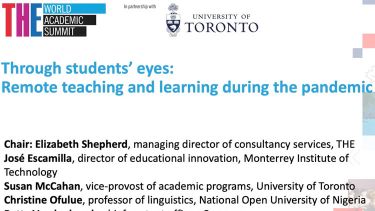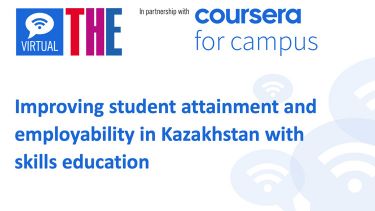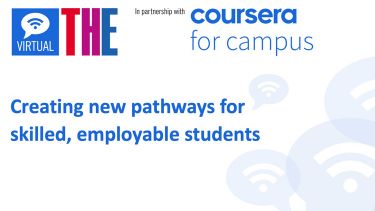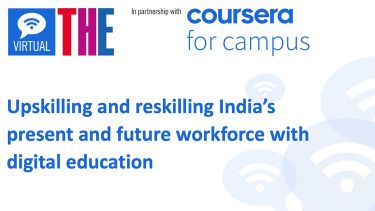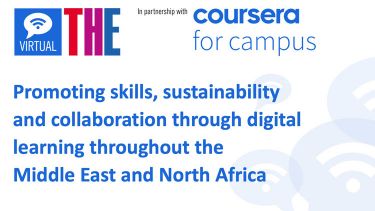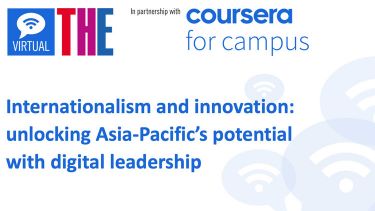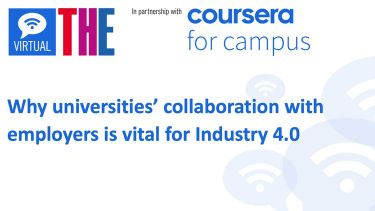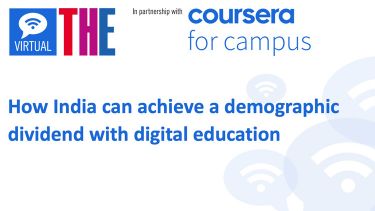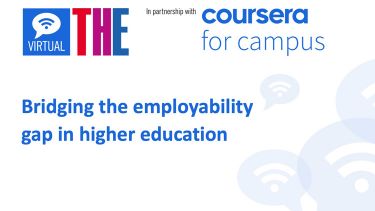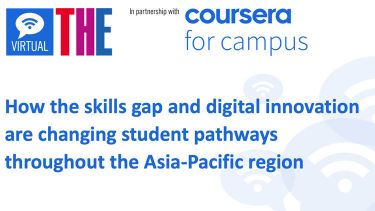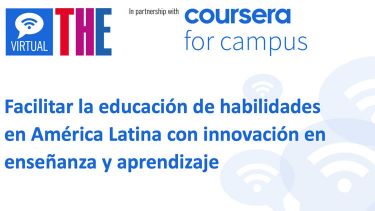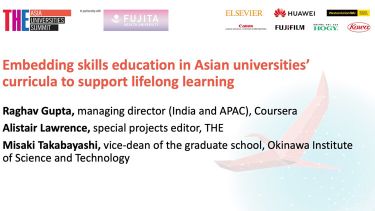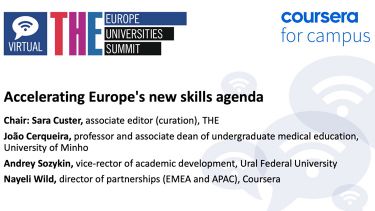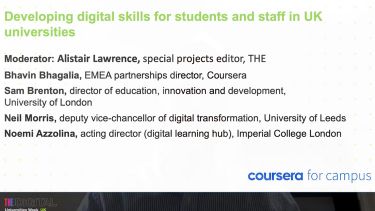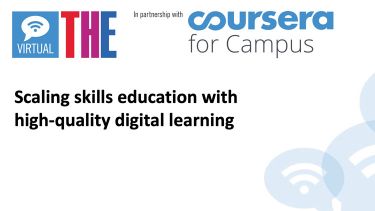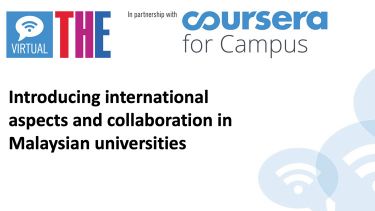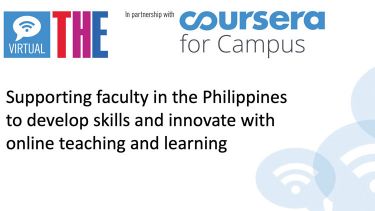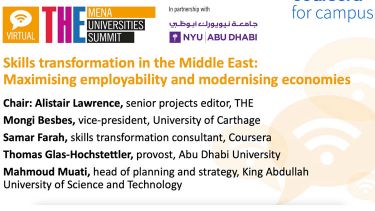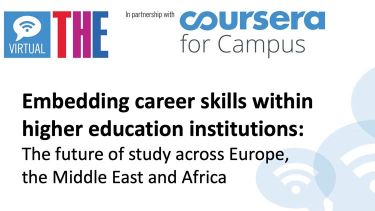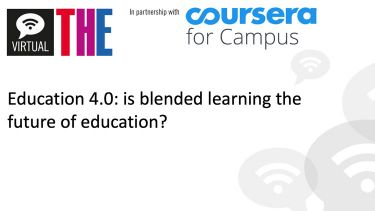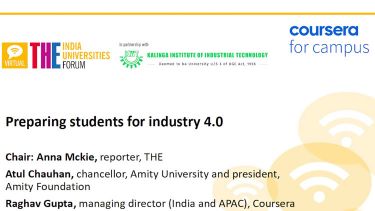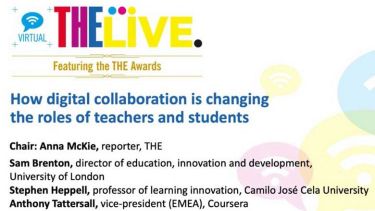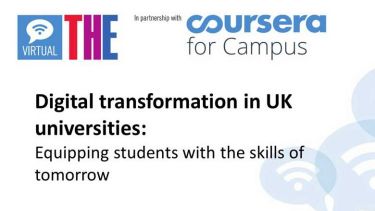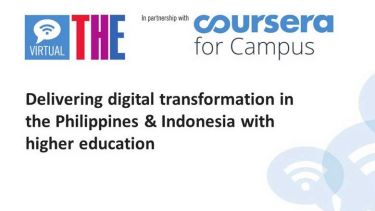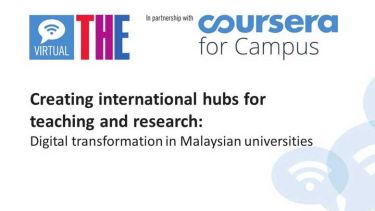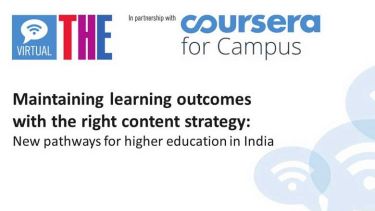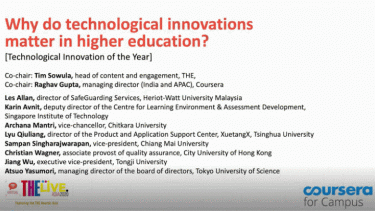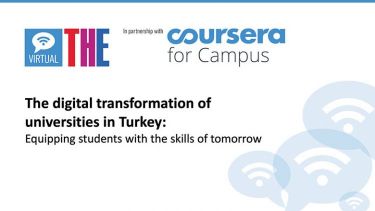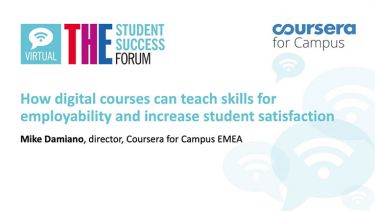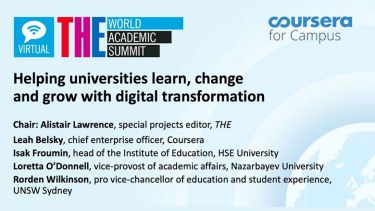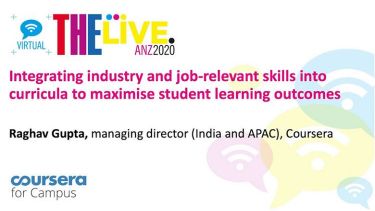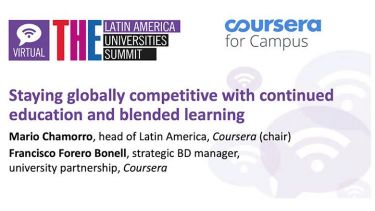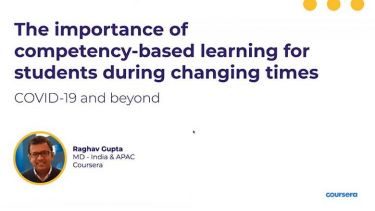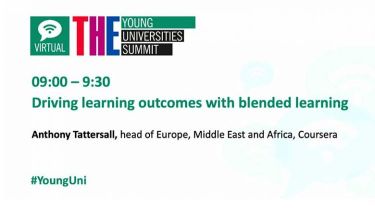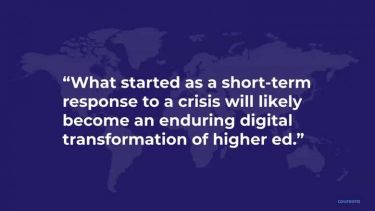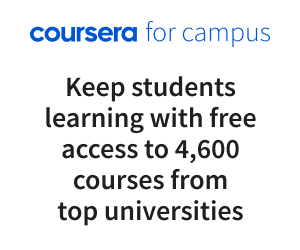Having shifted to online learning and teaching during the Covid-19 pandemic, universities are now seeking ways to boost employability in Central Asia
Ensuring students learn the skills required by industry and updating curricula by embedding skill-specific courses can help close the skills gap in Central Asia.
At a recent Times Higher Education round-table discussion, held in partnership with Coursera, experts from academia and industry discussed the move to digital education and how it could improve graduate employability in Central Asia.
Julia Gilmore, special projects content manager at Times Higher Education, said despite the setbacks of the Covid-19 pandemic, Central Asia continued to be one of the world’s most dynamic emerging economies. To sustain its economic growth, however, she said the region had to ensure its graduates had the skills needed to succeed in the workplace.
Eklavya Bhave, senior regional director for Asia at Coursera, said employers on the platform reported that almost 50 per cent of graduates did not have the skills they were looking for. He said Coursera works with more than 3,000 universities on its platform and has been supporting institutions to modernise curricula, help faculty members upskill and create their own blended content.
“In many universities, what the faculty members are doing is leveraging the content from Coursera and also building it and blending it with their own curriculum,” Bhave said.
Regina Sharshova, head of the international affairs department at International Information Technology University, said some changes had been made to the curriculum, including integrating Coursera courses. To manage the transition, course mentors monitor student progress and develop final examination questions.
“We want to give students the opportunity to plunge into the global educational environment by giving them not only hard skills, but also to help them with job readiness and to acquire important soft skills,” she said.
While digital platforms offer the chance to amend and adapt curricula, panellists stressed the importance of upskilling faculty. Sholpan Yessimova, vice-rector of Ahmet Yassawi University, said that the move to online teaching and learning had highlighted the lack of digital skills among some academic staff. The university used volunteer academic officers to support those who were less confident.
“It was difficult, but I think it has pushed our university to use more digital perspectives for the development of our university,” she said.
Lilya Karatayeva, senior manager in the Career and Advising Centre at Nazarbayev University, said “soft”, or human, skills were important for graduates, whether they were going on to further study or into the workplace.
“We have webinars for undergraduate and graduate students where we try to attract external speakers – the employers – who speak about critical thinking, strategic thinking, communication skills, conflict resolution etc,” she said.
Gaini Yessembekova, director of Career and Advising Centre at Nazarbayev University, said a strong alumni network could also boost employability prospects. She said that since 2015 the university has run mentorship and ambassador programmes to encourage alumni to stay connected to the university after graduation.
“They can share their experience and sometimes teach our students and give some feedback or advice on how to develop themselves. Involving our alumni can make a huge impact on the development of our students,” she said.
The panel:
- Eklavya Bhave, senior regional director for Asia, Coursera
- Kadisha Dairova, vice-president, Nazarbayev University
- Julia Gilmore, special projects content manager, Times Higher Education (chair)
- Regina Sharshova, head of International Affairs Department, International Information Technology University
- Gulnaz Toguzbayeva, quality assurance director, Suleyman Demirel University
- Gaini Yessembekova, director of Career and Advising Centre, Nazarbayev University
- Sholpan Yessimova, vice-rector, Ahmet Yassawi University
- Lilya Karatayeva, senior manager in the Career and Advising Centre, Nazarbayev University
Watch the round table on demand above or on the THE Connect YouTube channel.
Find out more about Coursera.


